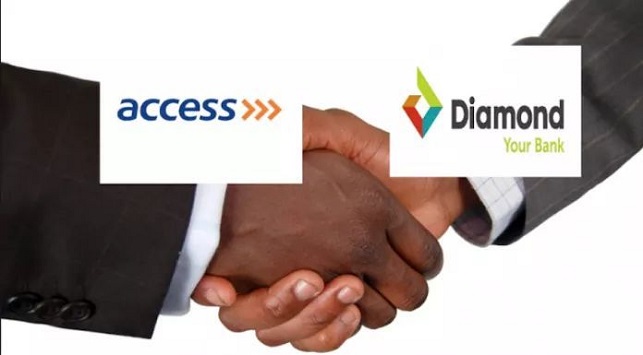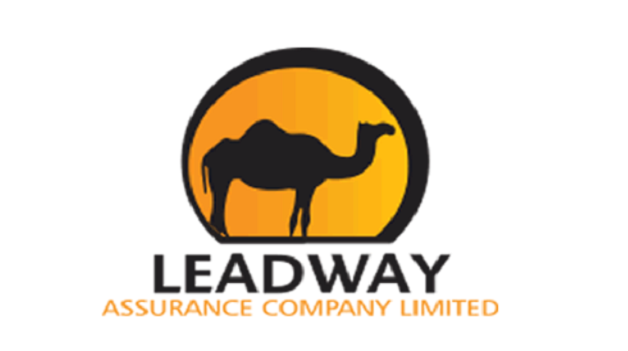E-Financial
Access Bank, Don Etiebet Fight over N2.4Bn Debt

Federal High Court in Lagos on Monday refused to grant an application by Chief Don Etiebet, former Petroleum Minister’s company, seeking to stop Access Bank Plc from taking over his property known as Etiebet’s Place on Mobolaji Bank Anthony Way, Ikeja, Lagos, Southwest Nigeria.
This is coming as Etiebet, also petitioned Securities and Exchange Commission (SEC) and asked the apex regulatory body of the capital market to nullify the highly publicised landmark merger between Access Bank and Diamond Bank.
But yesterday, Justice Mohammed Liman in his ruling on the application by Etiebet against Access Bank, also refused an application for stay of execution of a December 17, 2018 judgment of Justice Ibrahim Buba, which empowered Access Bank to take over the property located on Mobolaji Bank Anthony Way, Ikeja, Lagos, in the name of Etiebet’s company, Obodex Nigeria Limited.
The bank had dragged Obodex Nigeria Limited before the court over an alleged debt said to be in the tune of N2.4 billion.
The firm had challenged the court’s jurisdiction to hear the suit.
Justice Buba, last December 17, dismissed the firm’s objection and ruled in the bank’s favour.
Access Bank subsequently took over Etiebet’s Place and appointed Mr. Kunle Ogunba, Senior Advocate of Nigeria, as receiver/ manager to manage the property towards recovering the alleged debt.
Dissatisfied, Obodex Nigeria filed an appeal as well as an application for stay of execution of the judgment.
Through its lawyer, Mr. Dele Adesina (SAN), it sought an order restraining Ogunba and his privies or assignees from, “advertising or offering for sale, selling, mortgaging, transferring, alienating or otherwise interfering with the applicant’s equitable right of redemption on the property situated and lying at 21 Mobolaji Bank Anthony Way, Ikeja, Lagos, also known as Etiebet’s House, pending the hearing and final determination of the applicant’s appeals.”
While urging the court to grant his application, Adesina said, “I urge your Lordship to grant a stay of proceedings and stay of execution so that we’re not foisted this court with a fait accompli.”
But Access Bank, through Ogunba, opposed Obodex’s application, saying it was “totally misconceived”.
He said the receiver-manager was already in control of the applicant’s property, hence the application was belated.
“The defendant wants to eat his cake and have it. It’s very reprehensible. They admitted the debt and pleaded for time. They signed a mortgage. We urge your Lordship to discountenance their application,” Ogunba said.
Meanwhile, Etiebet, wants the highly publicised landmark merger between Access Bank and Diamond Bank nullified.
In the petition to the Securities and Exchange Commission (SEC), Etiebet drew the attention of SEC to the fact that Access Bank and its Managing Director Herbert Wigwe and other executive directors are currently facing criminal charges before the High Court in Shagamu, Ogun State and the High Court in Ikeja, Lagos.
The petition dated March 19, 2019, said his decision to seek for the nullification of the merger was in pursuant to the provision of Section 124 (3) of the Investment and Securities Act 2007 which ‘empowers any person to voluntarily file any document, affidavit, statement or other relevant information in respect of the merger’.
He accused the bank of hiding the financial fraud cases it has from the regulators, the Central Bank of Nigeria (CBN) and the Securities and Exchange Commission (SEC).
He insisted that if the regulators had got wind of the case which the bank had hidden from them while seeking their approval, the regulators would not have given approval for the merger.
Etiebet, who is a shareholder in Access Bank, had last month petitioned SEC on his position against the merger based on the fraud case his company has against the bank, including another in Ogun State involving a steel company.
He also based his decision to seek the nullification of the merger on the provision of Section 127 of the Investment and Securities Act 2007, which states that “The Commission may revoke its own decision to approve or conditionally approve a small, intermediate or large merger if the decision was based on incorrect information for which a party to the merger is responsible and the approval was obtained in deceit”.
E-Financial
Leadway Partners Firm to Launch Retail Insurance Product for Women

In line with passion and aspiration of the National Insurance Commission (NAICOM) to achieve financial inclusion among Nigerians especially Nigerian women, Leadway Assurance, has partnered with Wafira Ntaba Limited a marketing firm to launch a bespoken insurance policy for Nigerian women.

The product, Leadway Plan B Insurance policy, comes in simplified and affordable packages for as low as N26,000 per quarter, broadening financial inclusion and income protection for women-led small to medium-sized enterprises and lifestyle protection for women across different social strata in Nigeria.
Speaking at the media launch of the product, Leadway ‘s Director Sales, Retail and Partnership, Kike Fischer, shed light on the market approach for the Plan B product, saying “one uniqueness of the Plan B product is in its single-wide coverage from risks and perils related to auto insurance, healthcare, personal accident, fire, burglary, life insurance and education cutting across its different product packages – SME, Corporate and Premier packages.”
Also speaking, the visioner behind the Plan B Insurance for Nigerian women, Ayona Aguilera Trimnell shared the inspiration behind the products saying, “Plan B is an idea that has been in development for 10 years.
“As I began exploring insurance products aimed at women in other countries, I recognised the need for an insurance product that promotes financial inclusion in Nigeria, specifically for women. I believed we could create something that addresses their unique concerns.
Women need to understand how insurance can alleviate their worries and the benefits of being insured. I have personally enjoyed the advantages of insurance for over fifteen years, and I believe other women should have the opportunity to experience the same benefits.”
She said both partners could simplify the benefits of the plan B insurance product to help even the uneducated, understand and be convinced to secure their future by becoming a policyholder.
According to her, it has been proven and tested that women too buy insurance, but more women need to be aware and get insured.
On the market approach for the Plan B product, she said she was confident that these products would help women of all classes in Nigeria create and protect wealth, recover from economic challenges, pursue their purposes, and lead their families with peace of mind.
E-Financial
Sage Grey Finance Partners with Bank of Industry to Empower MSMEs in Nigeria

Sage Grey Finance Limited has joined forces with the Bank of Industry to provide accessible and affordable financing solutions for Micro, Small, and Medium Enterprises (MSMEs) in Nigeria.
This partnership, announced in Lagos, aligns with the Federal Government’s MSMEs Fund and aims to bridge the $236 billion funding gap faced by small businesses, fostering economic growth and job creation.
Eligible MSMEs can access loans of up to ₦5 million at a competitive 9% annual interest rate, with loan processing completed within five working days.
The initiative also includes SME advisory services to equip businesses with tools for sustainable growth.
Executive Director Jumo Atiba emphasized the critical role of MSMEs in national development, highlighting the partnership’s potential to stimulate entrepreneurship and unlock grassroots economic potential.
This collaboration reflects Sage Grey Finance’s commitment to financial inclusion and sustainable development.
The partnership builds on Sage Grey’s history of impactful initiatives, including a $200 million gas processing plant project and youth empowerment programs.
By addressing the challenges of financial exclusion, this collaboration is set to drive inclusive economic progress across Nigeria.
E-Financial
Four Red Flags Nigerians Ignored until CBEX Crashed- DUBAWA

It has not been a pleasant week for thousands of Nigerians who have again fallen for another money scam.

According to DUBAWA, a West African independent verification and fact-checking project, several persons on various social media platforms have begun to count their losses as CBEX, a popular digital asset trading platform, reportedly wiped out over N1.3 trillion from Nigerian investors’ accounts.
The platform collapsed after funds disappeared from users’ wallets, withdrawals were postponed, and communication channels were locked.
Taiwo Owolabi, a security analyst, recently released an analysis showing how investors’ funds were diverted through funnel wallets and finally into a central wallet, which now holds a total of $857 million in USDT.
The security expert concluded that CBEX was just another Ponzi scheme.
When CBEX promised a mouth-watering 100 per cent return on crypto investments in 30 days, many Nigerians rushed to invest just like they did with the defunct MMM.
However, despite the crash, CBEX has asked some investors to pay $100 and $200 verification fees to access partial withdrawals.
Now that the chips are down, it’s time to ask: “How did we not see this coming?”
Below are four red flags about CBEX that investors ignored.
- No regulatory approval
CBEX operated without registration or approval from the Securities and Exchange Commission (SEC) or the Central Bank of Nigeria.
Still, many Nigerians invested, assuming legitimacy because the platform looked flashy. This has become a pattern, as in previous cases where Nigerians got duped, the platforms were unregistered.
SEC has since warned Nigerians against investing in unregistered online forex and digital asset platforms, saying that operating such businesses without registration is now illegal under the new Investment and Securities Act (ISA).
Lesson: Always verify a platform’s regulatory status before putting your money in.
- Anonymous founders
CBEX’s website and Application did not list identifiable owners or executives. To gain credibility, CBEX masqueraded as a crypto platform, talking about “blockchain,” “trading bots,” and “AI-powered systems.” However, it had no verifiable trades or links to legitimate crypto exchanges. It used tech jargon to mislead its users.
Lesson: Transparency is a minimum requirement. If you don’t know who runs it, don’t trust it.
- Unrealistic returns on investment, withdrawal issues
While there is no ideal return on investments (ROI), excessively high ROIs or ones that appear too good to be true are usually a call for caution.
CBEX promised investors returns of up to 100 per cent in 30 days. That looks like a classic Ponzi red flag.
As seen in the past, these kinds of returns are unsustainable, but they remain effective bait that can appeal to anyone’s greed.
At first, CBEX worked. Users were getting paid even though Owolabi claimed the platform initially used one investor’s money to pay another until it could not.
Just before the crash, many users reported delays in withdrawing their funds. CBEX blamed this on “system upgrades” and “network issues,” which is a tactic common with failing schemes.
Lesson: High, guaranteed returns are a red flag, and consistent withdrawal delays indicate that the system is drying up. That’s usually when the exit strategy begins.
- Influencer endorsements and peer pressure
The Fear Of Missing Out (FOMO) does not respect age, especially when influencers, friends, and families are involved. However, the misuse of trust through misinformation is common in fraud schemes.
CBEX’s biggest marketing weapon was social media hype and word-of-mouth pressure. The platform relied heavily on trust networks.
From WhatsApp statuses to Facebook pages and TikTok videos, CBEX grew viral through a coordinated network of testimonials. People shared real and fake proof of payment screenshots and emotional success stories.
When friends and family members innocently vouched for it, people ignored other red flags and pumped money into the scheme.
Lesson: Social proof is not due diligence. Always investigate platforms independently, even if people you trust are involved.
Conclusion
CBEX’s collapse is not new; unfortunately, it may not be the last. DUBAWA urges investors to adopt a fact-checking mindset when approached with financial opportunities. Scams thrive on ignorance and trust. Our best defence is verification, not hope.
DUBAWA is a West African independent verification and fact-checking project, initiated by the Centre for Journalism Innovation and Development (CJID) and supported by the most influential newsrooms and civic organisations in West Africa to help amplify the culture of truth in public discourse, public policy, and journalistic practice.
It has a presence in Nigeria, Ghana, Sierra Leone, Liberia and The Gambia.

 General News2 days ago
General News2 days agoWorld Bank Announces $800m Support for Nigeria’s CCT Initiative

 General News3 days ago
General News3 days agoSanwo-Olu, Others Grace Launch of 50-Bed Hospital in Surulere by Avon Medical

 E-Financial3 days ago
E-Financial3 days agoCBN Pumps in Additional $150m into Forex Market to Safeguard Naira

 E-Financial3 days ago
E-Financial3 days agoSEC Says CBEX, other Unregistered Digital Platforms are Illegal

 Telecom3 days ago
Telecom3 days agoMTN, Meta Partner to Enhance Voice and Video Calling Quality

 Broadcasting3 days ago
Broadcasting3 days agoKONFAM 89.5 FM Hits Airwaves in Lagos Tomorrow

 E-Business3 days ago
E-Business3 days agoSERAP Calls for Withdrawal of Nigeria’s Data Act Amendment

 E-Financial3 days ago
E-Financial3 days agoKenyan CBN Okays Access Bank Full Acquisition Of NBK






















